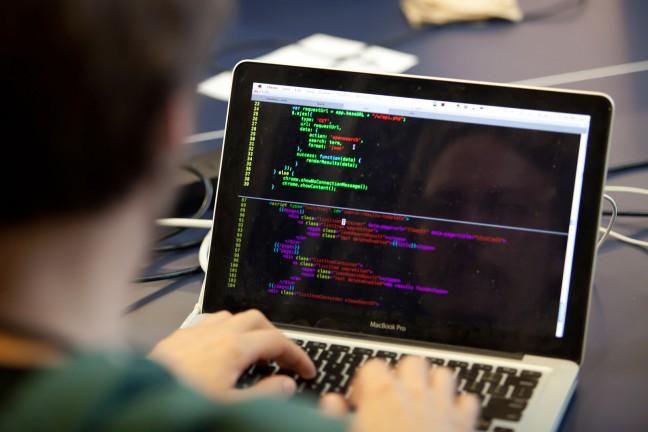City officials have selected a Madison-based company to help bring low-income neighborhoods up to speed with Internet services.
City technical services manager Rich Beadles said ResTech will provide fiber-optic cable Internet connections to residents in Darbo-Worthington and Kennedy Heights neighborhoods. The city hopes the pilot program will help alleviate the so-called “digital divide” within Madison.
City works to solve achievement gap, close the ‘digital divide’
Beadles, a member of the selection committee, said ResTech was chosen due to its superior reliability and capacity. The two other applicants both proposed wireless data plans, but Beadles said these options would have been susceptible to adverse weather and limited bandwidth, disadvantages which are not shared by the cable.
“The ResTech proposal was far and above the other two,” Beadles said.
The cables will provide 10 megabits of upload and download capacity for a standard duplex, Beadles said.
Beadles said the biggest disadvantage of fiber-optic cables is the capital cost associated with installation since they must be buried. Because of this high cost, the pilot will only reach two of the four neighborhoods originally proposed.
Beadles said the primary purpose of the pilot is to adhere to a state statute that prohibits local governments from providing telecommunication services without going through designated steps. He said once the pilot is functioning and data is collected, a cost-benefit analysis will be done and the city will look at expanding the service.
This is not the first time the topic of closing the digital divide has been brought up in the community, but this is the first major action that has happened, Claude Gilmore, Kennedy Heights Community Center executive director, said.
“The city has embarked on this process, which is taking awhile, but it is the first real action that has potential,” Gilmore said.
The process of providing Internet to the Kennedy Heights and Darbo-Worthington neighborhoods will include surveys to see how many people in these neighborhoods already have Internet services, Gilmore said.
For individuals who do not already have devices capable of using the Internet, Gilmore hopes to be able to organize donations to provide Internet-accessible devices.
“People who could not afford an Internet provider will now be able to use devices to search for jobs, work with their kids on their homework and access information at the touch of a fingertip,” Gilmore said.
Gilmore said his main concern about the project is its maintenance and support. Keeping open communication between the neighborhood residents, the provider and the city’s liason could pose a challenge, Gilmore said. Gilmore believes in the potential of the project, but wants to remain cautious in ensuring that “we do it right,” he said.
The contract with ResTech still has to be drawn up before it can be presented to the City Council, hopefully by November, Beadles said. If the council accepts the contract, installation of the cables should begin in the spring.












